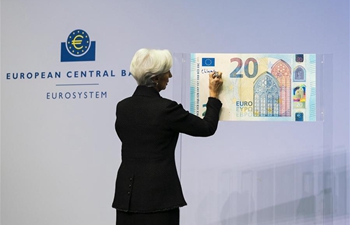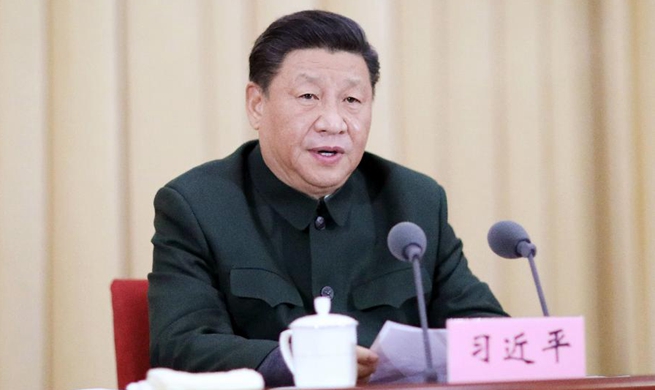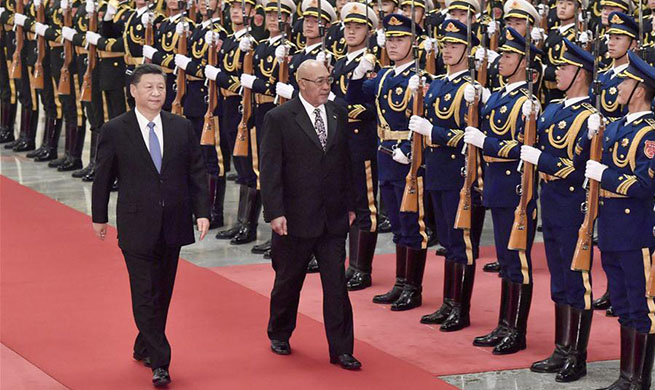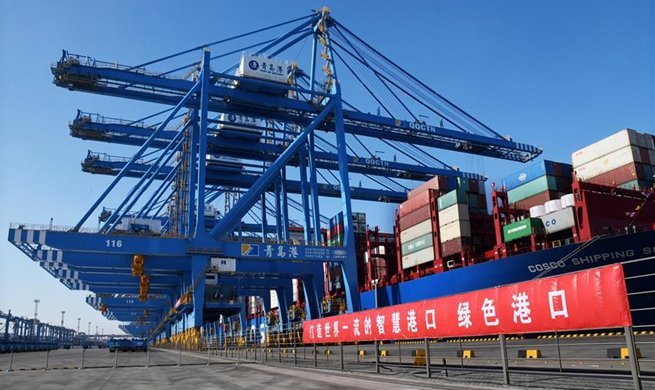BEIJING, Nov. 28 (Xinhua) -- Political experts worldwide and overseas Chinese communities have criticized the signing of a Hong Kong-related act into law by the United States, saying the move interferes in China's internal affairs.
They also believe that the U.S. signing the so-called Hong Kong Human Rights and Democracy Act of 2019 into law goes against international law and the basic norms governing international relations, and will negatively affect its relations with China as well as peace and stability worldwide.
Christine Bierre, editor-in-chief of France's Nouvelle Solidarite magazine and an expert at Schiller France Institute, said the U.S. introduction of the act is absurd, as it would encourage and support the violence in Hong Kong.
The U.S. meddling in Hong Kong affairs interferes in China's internal affairs and will cause severe harm to China-U.S. relations, she said.
Jose Luis Robaina, a researcher at Cuba's International Policy Research Center, said Hong Kong is an inalienable part of China, and the Hong Kong-related act is simply an interference in China's internal affairs.
The U.S. selective double standard on human rights is hypocritical and is inconsistent with international law and basic norms governing international relations, which serves its purpose of thwarting by all means China's development in fields such as politics, economy, and science and technology, he noted.
Greg Cusack, a former member of the Iowa House of Representatives, said the act is a testament to the hypocrisy of the U.S. Congress.
"Do the members of this august body pretend that the kinds of disorder, violence and destruction Hong Kong has endured for many months would be tolerated anywhere else?" he asked.
William Jones, Washington bureau chief of the U.S. publication Executive Intelligence Review, called the passage of the act a pure "interference in the affairs of China," saying, "Many of the activists will be encouraged by this 'support.'".
Zhang Fuming, president of the U.S. Chinese American Association of Commerce, said the U.S. act interferes in China's internal affairs.
The U.S. move is another example of the United States' bullying, he added, noting that it has nothing to do with the human rights situation in Hong Kong and would have a negative impact on U.S. relations with China.
Qiao Fengxiang, president of the Houston chapter of the National Association of Chinese-Americans, said he believes the bill would have a great negative impact on U.S.-China relations, harm the common interests of the two countries, and is not conducive to world peace and stability.
Tariq al-Senotti, deputy editor-in-chief of Egypt's Al-Ahram newspaper, noted that a country's legislation is domestic, and one country's domestic law is not applicable in other countries.
It is a means for the United States to apply more pressure on China, which, in fact, serves the United States' own interests, said al-Senotti, adding that what happens in Hong Kong is purely China's business and that the United States should not interfere.
Mohamed Galal, an Egyptian expert on strategic studies and international relations, said the Hong Kong-related act is a blatant interference in China's internal affairs and a serious violation of international law and the basic norms governing international relations.
The U.S. move shows chaos in the U.S. foreign policy, he added, warning that such a move would negatively affect U.S. relations with China.
Ronnie Lins, director of the China-Brazil Center for Research and Business, said the U.S. signing of the Hong Kong-related act into law is a violation of China's sovereignty, which is shocking.
The United States has imposed a "long-arm jurisdiction" in many international affairs, said Isabelle Carvalho, an expert at the Brazil-China Chamber of Commerce and Industry, adding that Hong Kong is a part of China and that Hong Kong affairs are China's internal affairs.
China has the ability to handle its internal affairs, and no country should interfere in China's internal affairs, said Nina Ivanova, head of the Belarusian Society of Friendship and Cultural Relations with Foreign Countries, adding that every country should observe international law and the basic norms governing international relations.
Robert Griffiths, general secretary of Communist Party of Britain, said the Hong Kong-related act is another example of how the United States "arrogantly violates the sovereignty of other nations and the rights of their peoples."
"Over the past 70 years, no country can match the prolific record of the USA when it comes to bombing, invading and subverting other countries," he said.
(Xinhua reporters Xu Yongchun, Zhu Wanjun, Xiong Maoling, Liu Yang, Ye Zaiqi, Gao Lu, Li Binian, Zhou Xingzhu, Wei Zhongjie and Sun Xiaoling contributed to the story.)

















